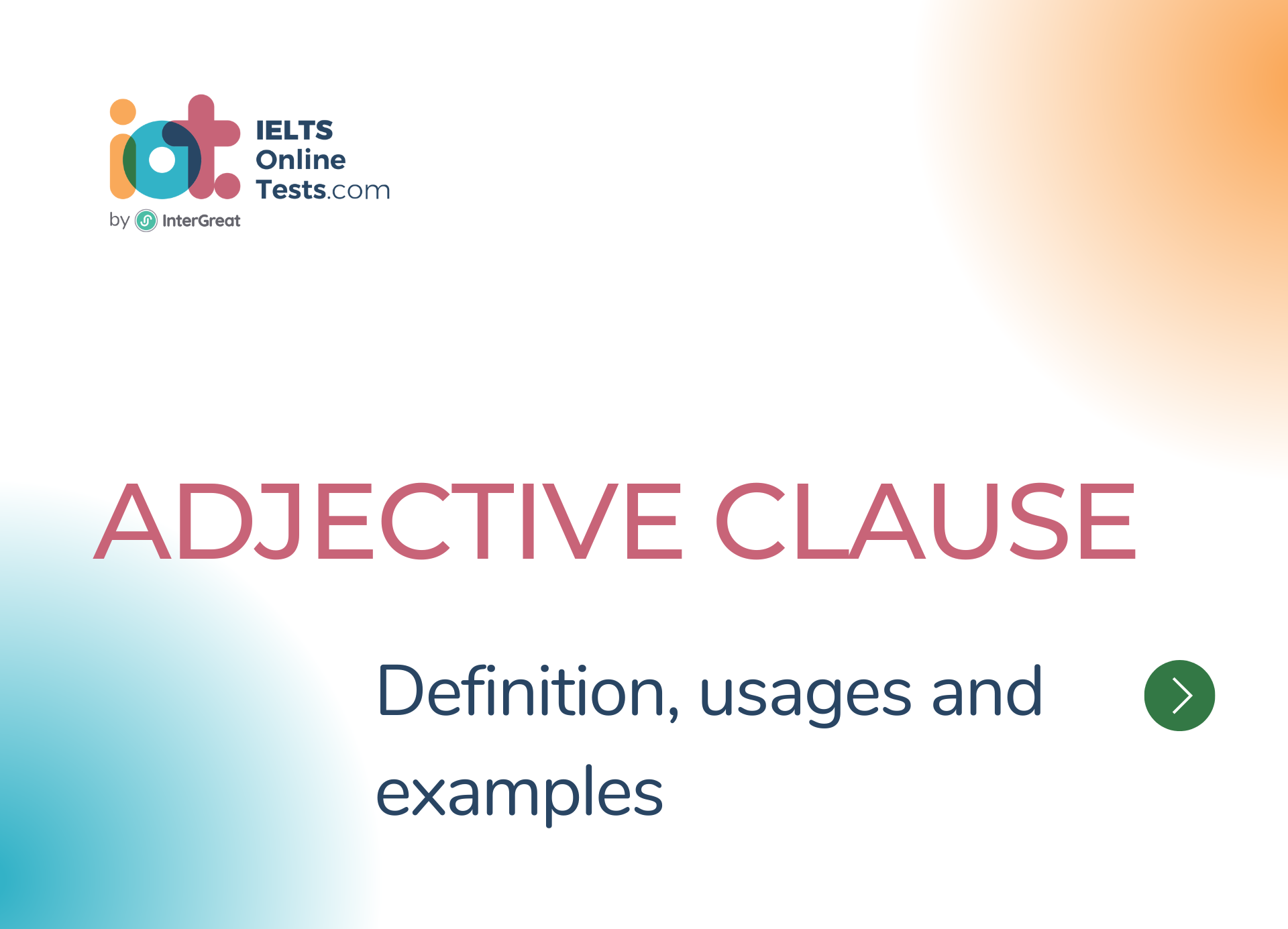
Adjective Clause definition, usages and examples
An adjective clause, also known as a relative clause, is a type of dependent clause that functions as an adjective. It provides additional information about a noun or pronoun in the main clause.
Here are some key points about adjective clauses:
Definition: An adjective clause is a group of words that contains a subject and a verb and functions as an adjective by modifying a noun or pronoun in the main clause.
Introduction: Adjective clauses are typically introduced by relative pronouns (such as "who," "whom," "whose," "which," or "that") or relative adverbs (such as "where," "when," or "why").
Modifying Nouns: Adjective clauses provide more information about the noun or pronoun they modify, adding details, descriptions, or explanations.
Placement: Adjective clauses usually come immediately after the noun or pronoun they modify, and they cannot stand alone as complete sentences.
Essential vs. Nonessential: Adjective clauses can be essential (restrictive) or nonessential (nonrestrictive) depending on their importance to the meaning of the sentence. Nonessential clauses are set off by commas.
Examples:
- Essential: "The book that I bought is on the table." (modifies the noun "book," essential to the sentence's meaning)
- Nonessential: "Jane, who is my best friend, is coming over." (provides additional information about "Jane," nonessential to the sentence's meaning)
Relative Pronouns: Relative pronouns are used to introduce adjective clauses and vary based on the role they play in the clause (subject, object, possessive).
- Example:
- "The person who won the competition is my brother."
- Example:
Relative Adverbs: Relative adverbs are used to introduce adjective clauses that provide information about time, place, or reason.
- Example:
- "I remember the day when we first met."
- Example:
Adjective clauses allow us to provide more specific information about a noun or pronoun in a sentence. They help to add depth, description, and clarification, making our writing more precise and engaging. By using adjective clauses effectively, we can convey complex ideas and provide additional context to our sentences.




